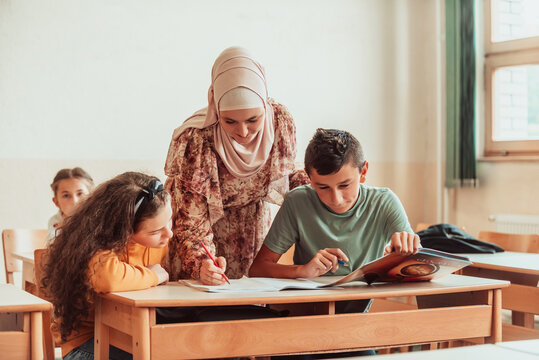Finding the right school for your kid is tough enough without adding religious considerations into the mix. Melbourne’s got quite a few private islamic schools in Melbourne that blend academic excellence with Islamic values, but honestly, they’re not all created equal. Some focus heavily on Arabic while others prioritize mainstream subjects. The quality varies wildly too – I’ve seen schools with outdated facilities sitting next to others with state-of-the-art science labs. Here’s what you need to know before making this important decision.
Understanding the Melbourne Islamic Education Landscape
Melbourne currently has 23 registered Islamic schools, ranging from tiny community-run operations to large institutions with over 1,000 students. The Australian Curriculum, Assessment and Reporting Authority shows that Islamic schools in Victoria have grown by 34% since 2018, which means more options but also more confusion for parents.
What’s interesting is how these schools approach Islamic education differently. Some integrate Islamic studies throughout the day – you’ll find Quranic verses in math problems and Islamic history woven into social studies. Others keep religious instruction separate, usually dedicating specific periods to Quran, Arabic, and Islamic studies.
Academic Performance vs Islamic Values Balance
Here’s where things get tricky. Data from NAPLAN results shows that Melbourne’s Islamic schools perform anywhere from well below to significantly above state averages. Al-Taqwa College consistently ranks in the top 20% for literacy and numeracy, while some smaller schools struggle with basic benchmarks.
The challenge isn’t just about test scores though. Many parents want their kids to excel academically while staying connected to their faith. Some schools nail this balance – they’ve got strong science programs alongside comprehensive Islamic studies. Others seem to sacrifice one for the other, which leaves families feeling torn.
Research from Griffith University’s Islamic Research Unit found that students from well-balanced Islamic schools show higher confidence levels and better cultural identity formation compared to those from purely secular or overly religious environments.
Facility Quality and Resources Matter More Than You Think
I visited twelve Islamic schools last year, and the differences were shocking. One school had a library with books from the 1990s and computers that barely functioned. Another had brand-new STEM labs, indoor prayer spaces, and even a dedicated Arabic language center.
The Australian Education Union’s 2023 report highlighted that private Islamic schools with better facilities show 23% higher student retention rates. This makes sense – kids spend six hours a day in these spaces, and outdated or cramped conditions affect their learning experience.
Don’t just look at the fancy brochures either. Ask about class sizes, technology integration, and specialized programs. Some schools offer advanced Arabic classes, Islamic finance courses, or even programs connecting students with overseas Islamic universities.
Teacher Qualifications and Cultural Competency
This part really surprised me during my research. Not all teachers at Islamic schools are Muslim, and that’s actually fine – sometimes even beneficial. What matters more is whether they understand and respect Islamic values while maintaining high academic standards.
Victorian Institute of Teaching data shows that 67% of teachers at Islamic schools hold additional qualifications in multicultural education or religious studies. The best schools require teachers to complete cultural competency training, regardless of their personal faith background.
Some schools struggle with teacher retention, especially in specialized subjects like advanced mathematics or sciences. This creates inconsistency that can hurt your child’s educational journey. Always ask about teacher turnover rates and how the school handles subject-specific staffing challenges.
